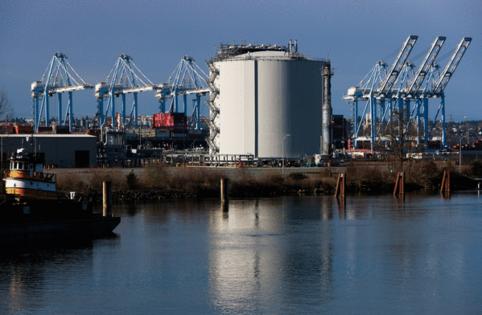State's new law involving PSE aspires to set a course for the future
Published in News & Features
SEATTLE —Over the past couple of years, Washington lawmakers have wrestled with a daunting task.
The problem: The state's largest utility, Puget Sound Energy, sells natural gas to nearly 1 million customers and burns gas and coal to electrify cities. That contributes millions of metric tons of planet-warming gases to the atmosphere.
It makes PSE one of the largest producers of greenhouse gas pollution in the state, ranked among fuel suppliers like Marathon, BP and Philips 66. And it represents a huge threat to the state's ambitious climate goals.
Lawmakers' original proposed fix would have been unprecedented in the country and required PSE to stop offering new commercial and residential natural gas hookups. But the version of the legislation signed into law by Gov. Jay Inslee last month didn't go nearly that far and illustrates the intense debate over turning off the flow of natural gas.
Dozens of states have gone the other direction, passing legislation prohibiting local gas bans or electrification mandates, and municipalities that have attempted to restrict new gas hookups have faced litigation.
Last month, Berkeley's ban on new gas connections was halted after the California Restaurant Association successfully opposed it in court. The Washington State Building Code Council has passed energy efficiency mandates intended to make it nearly impossible to install fossil-fueled appliances in new buildings — but not without legal challenges.
The state's new law involving PSE, passed with narrow voting margins and industry scrutiny, aspires to set a course for a future, decades away, in which natural gas is a thing of the past.
Washington Sen. Joe Nguyen, who sponsored the final version of the bill, said the law is "a plan for a plan" and allows PSE to start thinking about how to decarbonize when proposing rates to its regulator, the Washington Utilities And Transportation Commission.
It allows PSE to potentially raise rates earlier to pay for clean-energy projects, spreading the cost out over a longer period, among other adjustments.
Supporters say the law represents one of the first efforts nationwide of a utility agreeing to decarbonize and comply with emissions goals in exchange for regulatory changes.
...continued
©2024 The Seattle Times. Visit seattletimes.com. Distributed by Tribune Content Agency, LLC.







Comments